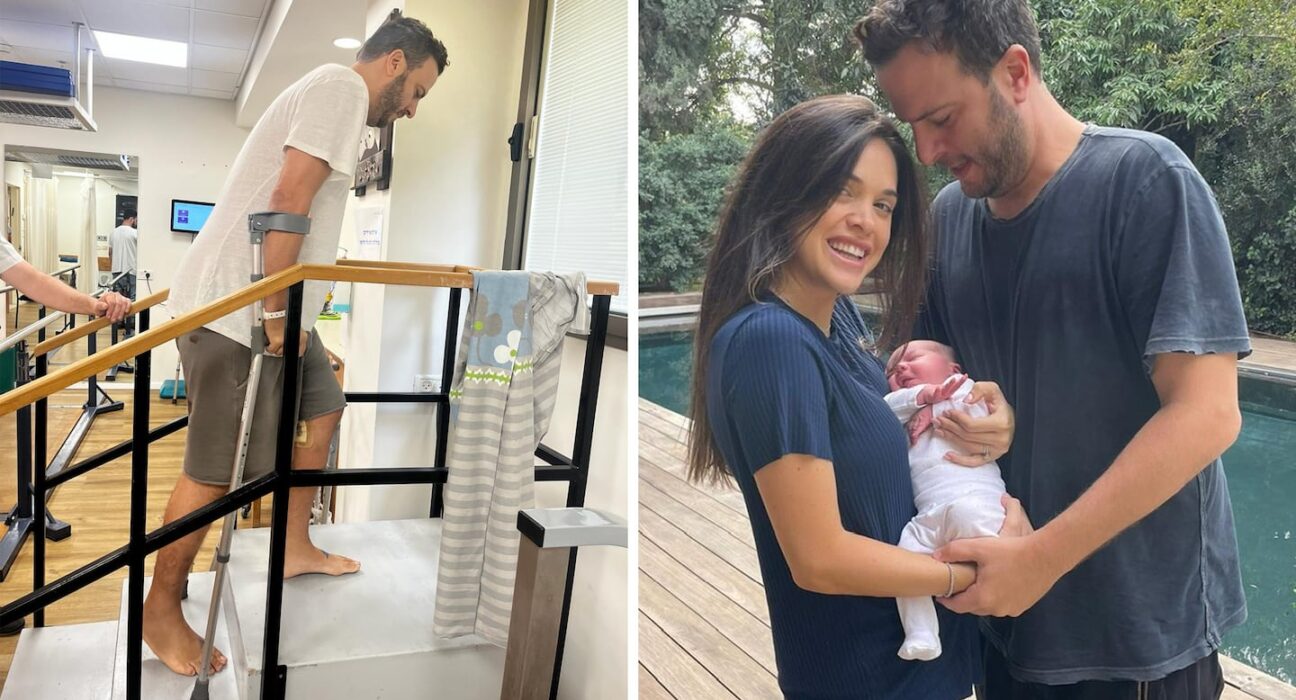When Hamas terrorists crossed the border from Gaza into Israel, they killed 378 people, many of them young revelers, at a trance music festival in the desert, part of a broader attack that killed around 1,200. Other festivalgoers were kidnapped, raped, or injured.
Near the two-year anniversary of Oct. 7, there is much to mourn and criticize on all sides. Gaza lies in ruins, and the Palestinian people are suffering immensely after two years of war. Israel is awaiting the return of 48 hostages, 20 thought to be alive. (On Friday, Hamas agreed to enter negotiations to release all the hostages.) The exhibit is a sobering reminder that regardless of one’s views on how Israel has conducted its retaliatory war, we must never forget the atrocities that sparked the war and their victims.
Beer, a DJ booking agent, arrived at the festival around 2:45 a.m., escorting a Hungarian disc jockey who flew in for the gig. Beer has long loved psytrance music for the feeling of community it provides when she dances alongside people regardless of gender, culture, or religion.
Around sunrise, after her client had finished his set, Beer was on stage filming another friend’s performance when missiles flew overhead and the music was turned off. They lay on the ground with their hands over their heads, which is the protocol for responding to missiles in an open area. When the missiles didn’t stop, a security manager ordered the field evacuated, and Beer grabbed her client and ran to her car. Beer first began to realize the magnitude of the attack when she reached a curve in the road and saw cars stopping short. Beer opened her door, then bullets started flying. “I had no way to defend myself, nowhere to run, nowhere to hide,” Beer recalled.
Beer said that a man’s scream snapped her to action. She put survivors from nearby cars into hers and drove backward, squeezing past a car with a dead driver. She saw terrorists lining the road, cars burning, and people falling. With no good options, she hit the gas as bullets hit her car. She can’t explain how she escaped.
“I have to believe I survived for a reason, because if I don’t have that reason, I’ll just go insane,” Beer told me. “My reason is to speak for the people who were lost on that stretch of road and anywhere else, to speak for the people that went to a festival in nature on a Saturday morning … and did not make it home.”
The exhibit, which opened last year in Tel Aviv and has traveled to New York, Los Angeles, and other cities, opens with a video of smiling, dancing young people. The next room features relics — an abandoned tent, a blood-spattered backgammon game, and burned cars — interspersed with video monitors: terrorists shooting, a woman hiding in the bushes, an audio recording of a man bragging of killing Jews. There are displays of unclaimed shoes, glasses, and hats.
Ticket proceeds benefit the Nova Tribe Community, a nonprofit that helps Nova survivors and bereaved families with mental health services, mentoring, healing retreats, gatherings, and memorials.
The exhibit was created by Nova festival founders, including Ofir Amir. Amir, 42, a German native who moved to Israel as a child, co-owns a Berlin real estate company, loves music, and worked a side job managing back-office functions for the Nova Music Festival. His wife was pregnant in October 2023, and they planned to move to Berlin after the baby was born.
That night, Amir told me, there was a “magical feeling” of happiness as young people danced through the night, some with LED lights and body paint. Then the missiles began. Amir stayed at the festival site to help evacuate it until he saw trucks of terrorists arriving. He piled in a car and was shot in both legs while escaping. When the engine was hit, Amir lay in a field of orange trees unable to walk, watching a friend take his last breaths, talking to his wife on the phone, and sending his location to everyone he knew. After four hours, rescuers arrived. Amir was among the lucky ones. He survived and was able to witness the birth of his daughter four weeks later.

Amir helped found the Nova Tribe Community to support survivors and bereaved families, to prevent suicides, and foster post-traumatic growth. “Hundreds of our friends were murdered, tens were taken hostage to Gaza. We understand if we don’t take care of our community, no one will do it for us,” Amir said.
Nova memorials and a documentary adopted the slogan, “We will dance again.” But for survivors, that isn’t always easy. Beer couldn’t listen to music for months after the attack. When a song played at a friend’s funeral, she panicked. She attended a music festival in Hungary and cried on the dance floor. “Festivals will never be the same again,” Beer said. “There’s always something there. Whether it’s the memory of friends … who aren’t there anymore, or whether it’s the fear something bad will happen again.”
Amir said the goal of the exhibit is to educate people about what occurred. “There’s so much hate and denial on social media, a lack of support from the music industry,” Amir said. “Through music, we can tell our story in a way that it’s not about taking sides. Because for everyone, it’s clear that a music festival and the dance floor, it’s supposed to be a safe place, it’s supposed to be a place where you celebrate life and love and freedom.”
Beer offers a similarly universal message: “This happened in Israel, but it could have happened at Coachella or Burning Man or anywhere else. And if we keep feeding this machine that’s filled with violence and hate, it’s not going to stop there.”
Shira Schoenberg can be reached at shira.schoenberg@globe.com. Follow her @shiraschoenberg.

